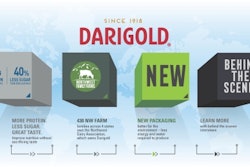
SpendEdge has announced the availability of its latest report on Milk Procurement for pre-order. The report on milk procurement is part of a larger series of reports on the global food and beverages market, which includes all spend relating to raw food and beverages required to prepare meals for clients and staff. If the food has been provided as a meal, then it should be excluded from this category. The dynamics of the global milk market play out within this wider arena of the food and beverages market. Therefore, our coverage of the milk category also operates within this broader boundary of the overall food and beverages market.
According to our experts, suppliers are shedding the category expert tag and moving up the value chain to offer an integrated approach to their services. With this new approach, suppliers can offer a wide portfolio of services and position themselves for large contracts that go beyond just milk. As the market presence of companies become global, there is a growing preference towards service providers who can provide services seamlessly across the globe and have an excellent understanding of local regulations and culture.
Milk Procurement Risks
- Suppliers regularly outsource services such as housekeeping and food services to third-party vendors. However, the failure of third-party vendors to deliver due to technical or operational constraints results in significant losses to the buyers
- When requirements of the buyers are not absolutely clear or usage patterns are not stable or predictable, suppliers often build in \”cost buffers\” for unforeseen risks due to a lack of complete understanding of buyer’s requirements. This increases the risk of overspending on milk
Milk Procurement Best Practices
- Investing in benchmarking studies helps category managers enhance their knowledge of pricing or billing rates of suppliers. This helps them to not only save costs but also negotiate better with suppliers.
- Category managers must explore opportunities to integrate planning and management activities of categories using analytics, to gain better control over category spend. This will also allow them to consolidate their supply base easily, as well as to segment suppliers based on requirements and spend on each supplier.















